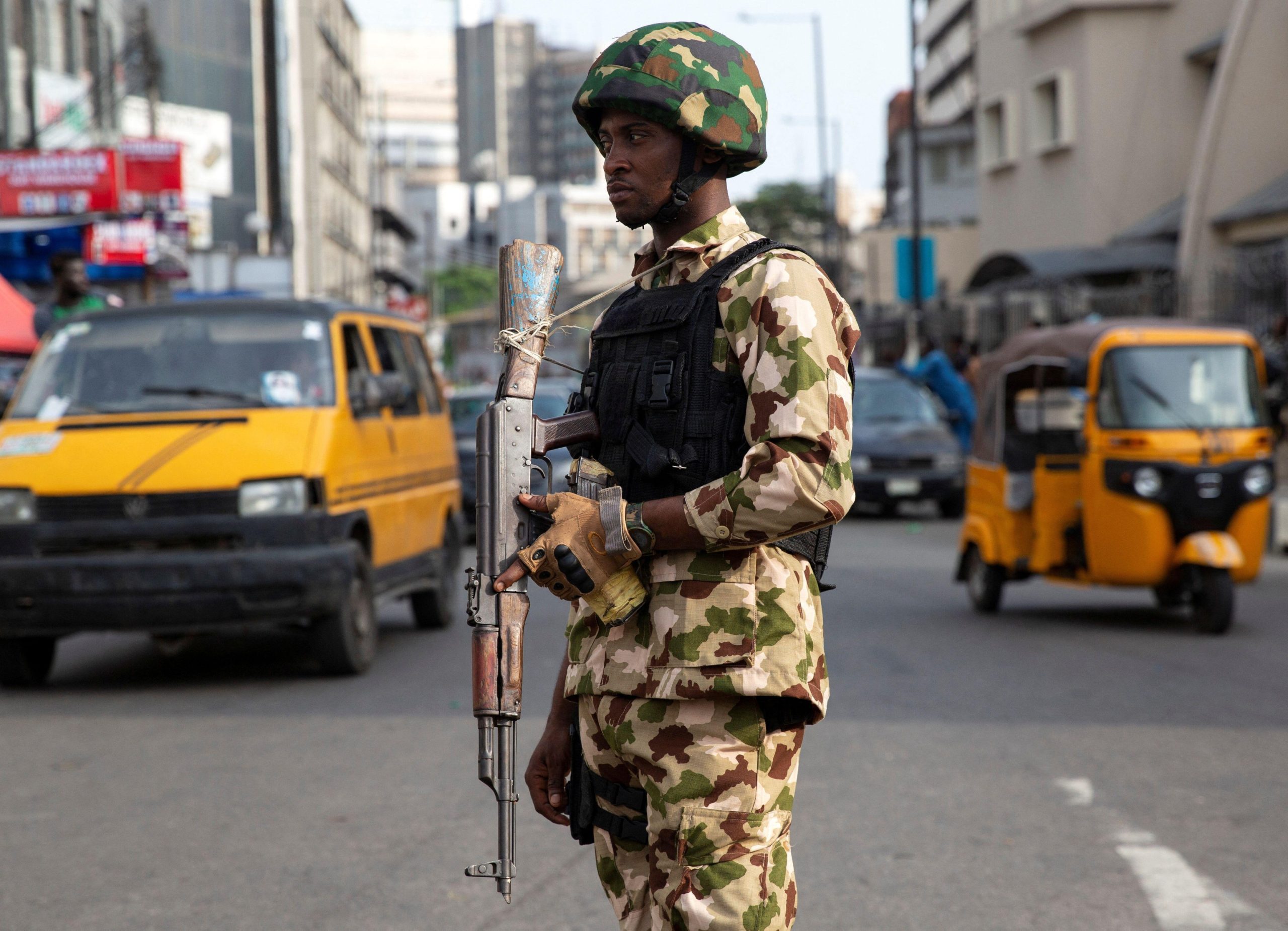On 25 February, Punch Newspaper journalist Gbenga Oloniniran stood near the Governor of Rivers State’s residence in Southern Nigeria, covering the recent presidential election. As policemen gathered and arrested young people at a polling station, Oloniniran brought out his camera, taking snapshots of the incident. Instantly, the policemen left the youths, pounced on Oloniniran, snatched his camera, and bundled him away in a van. They denied him the right to cover the elections.
This was not an isolated incident. At least 14 journalists and media workers covering the presidential election were detained, intimidated or attacked by security forces, political groups or citizens. During the state elections held on 18 and 19 March, at least 28 more journalists suffered the same treatment, with many more cases likely going unreported.
“They threatened me, and that was under the rain, and I was shivering,” Bolanle Olabimtan, a journalist at The Cable, told Index after she was attacked in Delta State. She was punched, and had the photos deleted from her phone.
Haruna Mohammed Salisu, CEO of WikkiTimes, was arrested while covering a protest during the presidential elections. He was detained and charged with inciting disturbance of public peace. He claims he had his phone taken, was interrogated by security personnel and was then assaulted by violent supporters of the governor.
“My experience in detention serves as a stark reminder of how vulnerable journalists are in Nigeria,” he wrote in WikkiTimes.
On March 18 unidentified men attacked an Arise TV crew consisting of reporter Oba Adeoye, cameraman Opeyemi Adenihun and driver Yusuf Hassan. Adenihun suffered facial injuries and their drone was seized. Meanwhile in Ogun State, Adejoke Adeleye, a News Agency of Nigeria reporter, was attacked by a mob when filming at a voting station. Five people, including one masked person wielding an axe, chased the group of journalists that included Adeleye, according to the Committee to Protect Journalists. In Lagos, 10 people hit reporter Amarachi Amushie and camera operator Aliu Adeshina from the privately-owned broadcaster Africa Independent Television, as they reported at a polling station. Security agencies issued threats. They harassed Adesola Ikulajolu, a freelance investigative reporter, deleting the image folder in his phone.
Nigeria is ranked at 129 out of 180 nations in the 2022 World Press Freedom Index compiled by Reporters Without Borders, with this latest assault on press freedom demonstrating part of the reason for the ranking.
After the attacks, Dupe Fehintola, Chairman of a branch of the Nigeria Union of Journalists, made a statement saying: “We condemn these attacks on journalists.”
During the elections, members of the Nigerian media investigated potential links between political parties and violent attackers, who threatened voters unless they proved they were casting their ballots in favour of the ruling All Progressives Party.
Adebola Ajayi, a journalist at People’s Gazette, experienced that violence first hand, saying: “I was attacked by political thugs at a polling unit in Orile-Oshodi ward in Lagos.”
This violence may have contributed to the fact that 71% of voters abstained from the elections. The election winner, APC’s Ahmed Tinubu, received only 8.8 million votes, while challengers Atiku Abubakar of the Peoples Democratic Party gathered 6.9 million and Peter Obi of the Labour Party received 6.1 million, in a country of 93 million registered voters and a population of over 200 million.
Evidence gathered by the media – including assaults on electoral officials and an incident where attackers destroyed ballot boxes with axes – showed that violence marked the elections. The pressure on journalists as they faced this violence themselves prevented them from covering the elections fairly.
Nearly two weeks after the end of the state and presidential elections, the media remains shaken.
“We strongly condemn these unacceptable attacks, which constitutes both the violation of fundamental human rights of the affected journalists and media worker and a major assault on press freedom,” Melody Akinjiyan, the spokesman of the International Press Center, Lagos, told Index.





